Measures of Romania in the cultural sector within the context of COVID-19
Article published on 22-04-2020The unprecedented nature and magnitude of the COVID-19 crisis compels us to reinvest, more than ever, in international cooperation and intergovernmental dialogue, in order to unite our efforts, engage in a shared reflection and take concerted action to fully embed culture into the socio-economic response to the crisis. On 22 April, UNESCO convened over 90 Minsters of Culture for an online debate to share their observations on the impact of the health crisis on the cultural sector, as well as share the strategies implemented within their states. The central authorities of Romania have taken several measures to support its Culture sector. Please find below a selection of such measures.
On April 8, 2020, the National Institute for Cultural Research and Training launched the "Culture in Quarantine" platform, where it monitors the cultural field during the COVID-19 crisis. The platform identifies the providers and the cultural contents produced and put into circulation during this period. Also available in English: https://culturadatainteractiv.ro/monitoring-the-cultural-domain-in-romania-during-the-covid-19-crisis/context/
The legislation adopted in the context of the pandemic includes economic and fiscal-financial measures with an impact on the cultural-creative sector. For example, in addition to the social protection aid granted to authorized individuals and individual enterprises in the cultural sphere, natural persons who obtain income exclusively from copyright and related rights will receive a support allowance equal to 75% of the average gross national wage.
The Ministry of Culture has launched the ACCES Online 2020 financing program, dedicated exclusively to artists in the private sector, as a financial support tool for cultural projects which have the capacity to be disseminated in the online environment. The projects submitted must be in the fields of theatre, music, dance, visual arts and intangible heritage. The amount allocated to the ACCES Online 2020 program is 1 million lei (RON).
The Ministry of Culture has also started the procedures regarding the acquisition of contemporary art in the amount of 2 million lei (RON). This approach represents a support solution for Romanian artists in the context of the COVID-19 crisis, but also a long-term investment of the Romanian state.
Cultural institutions throughout the country continue their activity in the online environment. Public and independent theaters broadcast live or recorded shows and rehearsals. Musical institutions (operas, operetta theaters, philharmonics) broadcast concert recordings. The museums provide virtual tours of the exhibitions and digitized heritage. Libraries provide access to digital archives. Publishers offer free volumes in digital format (e-books) or propose campaigns of substantial discounts.
You may follow UNESCO's cultural response to the COVID-19 crisis here.



